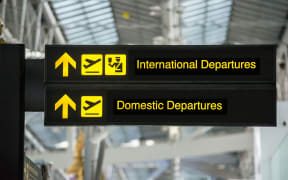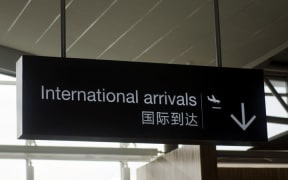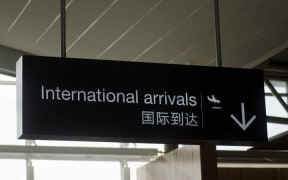By Saziah Bashir*
Opinion - Immigration NZ has been using "data profiling" to prioritise the deportation of overstayers, based on those whose profile poses the greatest risk to New Zealand in terms of costs to our health or criminal justice system.

Photo: everythingpossible/123RF
The risk profile is based on data collated from previous migrants with similar demographics such as ethnicity, age, gender and visa type.
Immigration NZ has been testing the programme for the past 18 months, though - embarrassingly - Immigration Minister Ian Lees-Galloway was made aware of its existence only yesterday morning when the news broke on RNZ's Morning Report.
The Minister strongly stressed the point that overstayers were already in New Zealand illegally and the data collected went beyond just ethnicity and could not, therefore, be considered racial profiling.
But this is, in essence, racial profiling, with the use of additional data serving to simply bolster rather than ameliorate the harmful stereotypes that are going to be utilized - add male and young to a Middle Eastern ethnicity and that solidifies, rather than softens, a particular profile in a post-9/11 world.
The Minister attempted to frame the issue as one of effective use of Immigration NZ resources, but the bigger picture here shows a use of assumption-based cost-benefit forecasting to evaluate people.
The policy might word it in a more palatable form, but in practice we would be saying "NZ welcomes European holidaymakers, but not Pasifika or Asian grandparents" because one might bring tourism revenue but the other might need to go to a hospital and have an expensive procedure while visiting family.
The truly absurd aspect to this is that it appears people are being judged and are facing very significant consequences for crimes they haven't committed, or health issues they may not actually have, simply because they fit a certain profile.
Immigration NZ area manager Alistair Murray called it "predicting how someone is most likely to behave based on how their predecessors have behaved".
Applied to certain groups of New Zealanders, that profile might suggest a particular penchant for binge drinking and prolific sporting injuries - and all the costs associated with those behaviours. If the notion that such a profile alone could impact how a Kiwi is treated by an immigration authority somewhere feels a bit unfair and arbitrary, then it should, because it is.
And while the use of these profiles may start in the case of overstayers, who are admittedly in the country illegally, there are already suggestions their use is bleeding into the denial of visa applications outright. This slippery slope, that the use of such profiling might be applied in the wider context of immigration is of real concern.
It raises fears of certain ethnic groups being targeted if Immigration NZ officers are using the profiling system to perpetuate their preconceived biases, with no avenue for recourse to those affected.
As it is, there is no current review or appeals process for deportations. How would use of such profiling impact our commitments to the United Nations and international human rights laws with regard to how we approach the processing of refugee status applications?
Though I can understand their need in operating complex immigration systems, as an immigrant myself, I find it difficult to stomach any concept of profiling or classification.
A citizen now, I arrived as a child with my parents, who qualified under the skilled migrants category. I could never consider myself above or below other "classes" of immigrants.
Enforcing such divisions within migrant communities would also fracture what is often a vital source of support to people who are already grappling with adjusting to a new country, culture, language and how they fit into the fabric of society in their new home.
It can also expose already vulnerable groups to exploitation due to their immigration status.
Most importantly, if we frame the very language of the system that manages how we move people through our borders in terms of monetary cost and risk, and reduce whole human beings to "benefits" or "burdens" based on projections rather than fact, how deeply does that undermine our belief in New Zealand as a place that values fairness, human dignity, individual potential and the strength of community?
*Saziah Bashir is a freelance journalist commenting on issues of social justice, race and gender. She completed an LLB, BCom and LLM from the University of Auckland.




